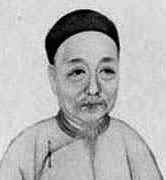Person: Yuan, Ruan

Ruan Yuan was a Chinese scholar who wrote biographies of astronomers and mathematicians.
Mathematical Profile (Excerpt):
- The city of Yangzhou where Ruan was born is about halfway between Nanjing and Shanghai.
- Ruan obtained his master's degree in 1786 and, three years later, passed the civil service examinations and was appointed to the Hanlin Imperial Academy, the highest academic institution in China.
- We should note that this put Ruan in a position of authority since scholars there acted as advisors to the emperor and as his confidential secretaries.
- Perhaps we should say a little about what was involved in Ruan Yuan's education.
- To achieve the level which Ruan Yuan achieved required many years of study and he would have been a very elite scholar of Confucianism.
- Ruan Yuan did not follow the traditional Neo-Confucian beliefs which were based on the commentaries on the classic texts by Cheng Yi and Zhu Xi. Rather he believed in evidential studies which believed that truth was best achieved by studying the classics themselves, and older commentaries on them.
- Starting in 1772, when Ruan Yuan was a young boy, the Chinese Emperor Qianlong organised major searches for lost texts.
- From 1790 Ruan worked for the Hanlin Imperial Academy.
- Ruan's career as a government official led to him holding a variety of offices such as that of a minister in the Education Department of Shandong province from 1793 to 1795 when he took up a similar post in Hangzhou in the Education Department of Zhejiang province.
- It was while he held this post that Ruan began his most famous work, namely the Chouren zhuan or Biographies of astronomers and mathematicians.
- In this work Ruan put forward the idea, which had been gaining credence in China for some time, that all Western sciences were of Chinese origin.
- That was all that Ruan Yuan needed to bring to the fore "the strong and weak points" of both sciences in order to prepare a future synthesis.
- In this year Ruan Yuan was appointed a professor of mathematics in the Imperial Academy as well as holding a number of posts in government departments.
- In it Ruan advised the readers of the book not to follow the Copernican theory just because of its "newness".
- An incident occurred in 1809 which somehow involved the examination procedure and since Ruan Yuan was responsible be was demoted.
- Ruan, in order to further his research, always sought out ancient texts and information from inscriptions, and interviewed leading citizens wherever he was appointed.
- Zhu Shijie wrote the Sijuan yujian (Jade mirror of the four unknowns) but the work was lost during the latter part of the 18th century and was not found by Ruan Yuan when he compiled his Biographies of astronomers and mathematicians in 1799.
- Ruan's hand written copy was eventually printed.
- In 1817 Ruan Yuan reached his highest position of importance when he was appointed Grand Governor of the two Guangzhou, so becoming governor of the two provinces of Guangdong and Guangxi in southern China.
- It was in the city of Guangzhou that Ruan Yuan founded his most famous academy the Xuehaitang, meaning the Sea of Learning Hall.
- Building was complete in the following year and Ruan himself set the first examination essays.
- The Xuehaitang Academy had only been operating from its new buildings for about a year when Ruan moved again, for in 1826 he was appointed Grand Governor of Yunnan and Guizhou.
- We should mention another of Ruan's scholarly interests, namely that he was an avid collector of bronze ritual vessels and is said to have owned over 460 of these which had been made between 1600 BC and 220 AD.
- Finally let us note the importance of Ruan's Biographies of astronomers and mathematicians in Chinese scholarship.
Born 21 February 1764, Yangzhou, Jiangsu province, China. Died 27 November 1849, Yangzhou, Jiangsu province, China.
View full biography at MacTutor
Tags relevant for this person:
Ancient Chinese, Astronomy, Chinese, Origin China
Thank you to the contributors under CC BY-SA 4.0! 

- Github:
-

- non-Github:
- @J-J-O'Connor
- @E-F-Robertson
References
Adapted from other CC BY-SA 4.0 Sources:
- O’Connor, John J; Robertson, Edmund F: MacTutor History of Mathematics Archive
